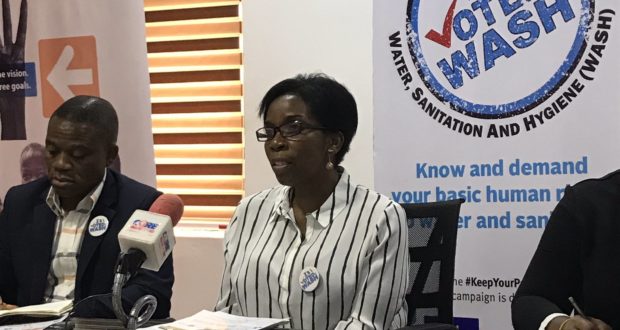Water Day: There’s enough groundwater reserves to face five years of drought – Research

WaterAid and BGS produced a series of maps which chart current access to drinking water across Africa and drought resilience based on potential useable groundwater at national level. It reveals:
- Most countries in Africa have sufficient groundwater for people to not only survive but thrive – in some cases for more than 50 years.
- This includes Ethiopia and Madagascar – where only around half the population have clean water close to home – and large parts of Mali, Niger and Nigeria.
- Every African country south of the Sahara could supply 130 litres of drinking water per capita per day from groundwater without using more than 25% of the long-term average recharge, and most less than 10%. This means groundwater could provide a buffer against climate change for many years to come, even in the unlikely event that it doesn’t rain.
But gross underinvestment in services to get the water out of the ground and to those who need it most and untapped or poorly managed resources means millions of people don’t have enough safe, clean water to meet their daily needs, let alone face the impacts of the climate crisis, WaterAid and BGS warn in a new report.
“Groundwater: The world’s neglected defence against climate change” was released by WaterAid and BGS on Tuesday as Heads of State meet at the World Water Forum in Senegal, West Africa.
Groundwater – which exists almost everywhere underground, in gaps within soil, sand and rock – has the potential to save hundreds of thousands of lives and be the world’s insurance policy against climate change, the organisations assert.
It could help communities cope not only with slow onset impacts like drought and irregular rainfall, but also provide resilience to rapid onset impacts like floods by ensuring safe water is available for all, including in schools and hospitals, according to the report.
Tim Wainwright, Chief Executive of WaterAid in the UK, said: “Our findings debunk the myth that Africa is running out of water. But the tragedy is that millions of people on the continent still do not have enough clean water to drink.
“There are vast reserves of water right under people’s feet, many of which are replenished every year by rainfall and other surface water, but they can’t access it because services are chronically underfunded.
“Tapping into groundwater would ensure millions have access to safe, clean water no matter what the climate crisis throws at them.”
Evelyn Mere, WaterAid Nigeria Country Director, said: “The potential of groundwater can only be realised if we overcome the complex global problems around accessing it. Groundwater is an invisible resource, so tapping it, particularly in places where it is harder to get to, relies on knowledge about the geology beneath our feet. The quantity and quality of the groundwater also varies, and in some areas, we simply don’t know how much there is or its suitability.”
Professor Alan MacDonald, BGS Groundwater Resilience Lead, said: “Groundwater is nature’s water reservoir, and a key resource to help the world adapt to climate change. It’s widely available, controlled by natural variation in geology, but is out of sight beneath our feet.
“To unlock the great potential of groundwater, we need the right investment in expertise to map groundwater, drill sustainable wells and find ways to maintain and manage water resources and services.”
Karimatu, 17, from Adamawa, Nigeria, who is featured in the report, wakes up at 6am every day to collect water from a nearby stream, making at least three trips before school. Karimatu would like to be a doctor but fetching water early in the mornings affects her schoolwork.
“Getting a steady water supply will make me happy,” she told WaterAid.
The report also explains that while groundwater in sub-Saharan Africa is largely underused, in other parts of the world – mainly in south Asia – overuse is rife. This, along with a lack of regulation, insufficient expertise and investment, often leads to mismanagement, contamination and pollution – with potentially devastating consequences.
source environewsnigeria


